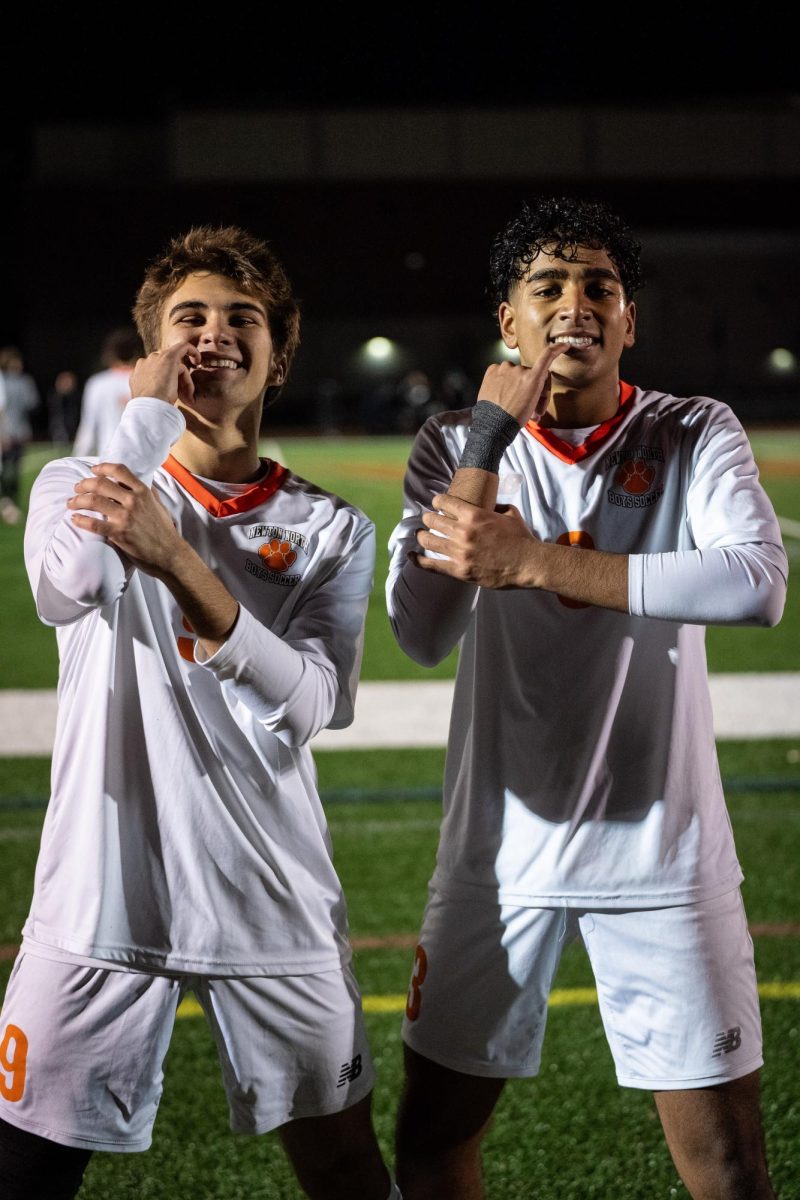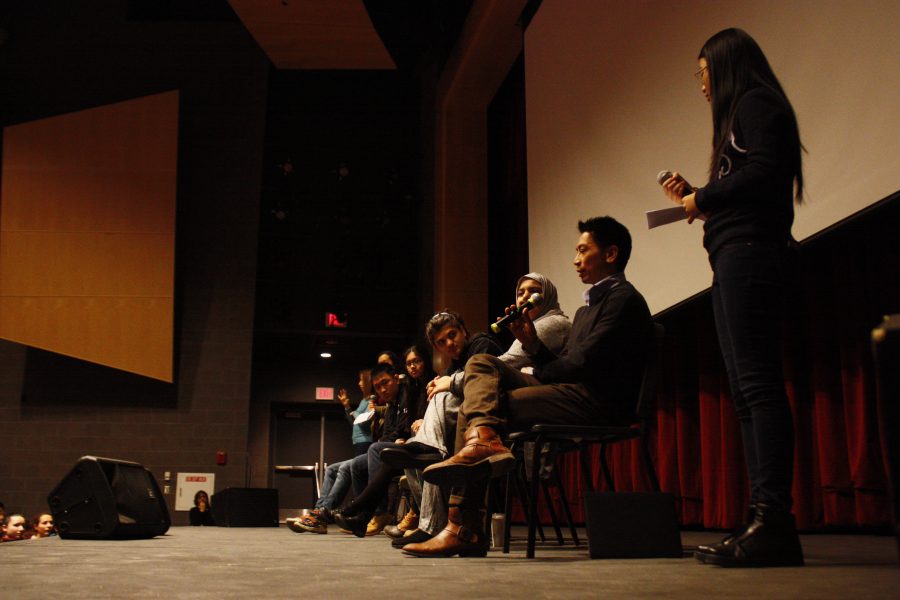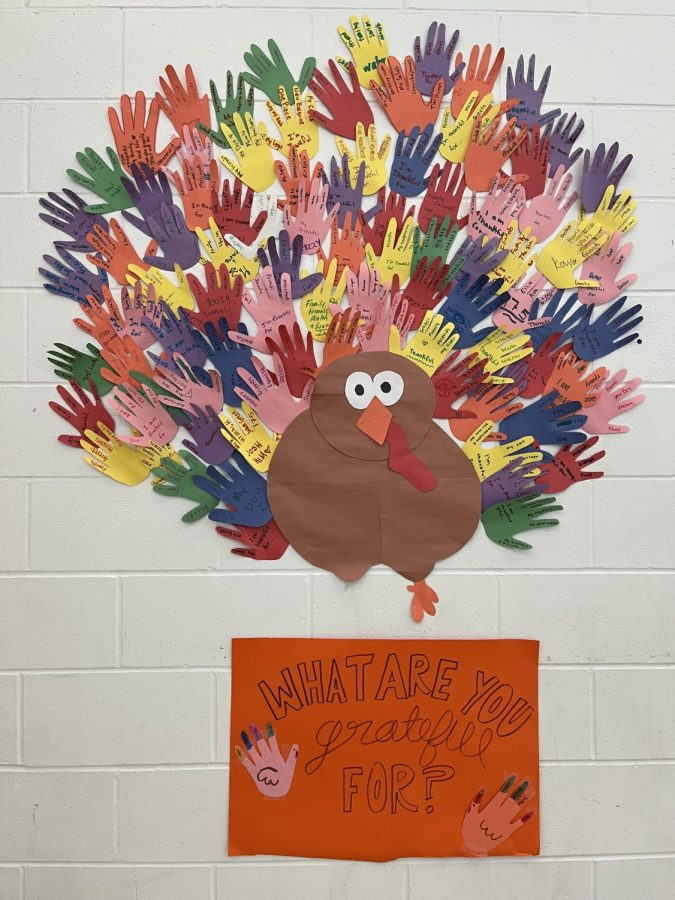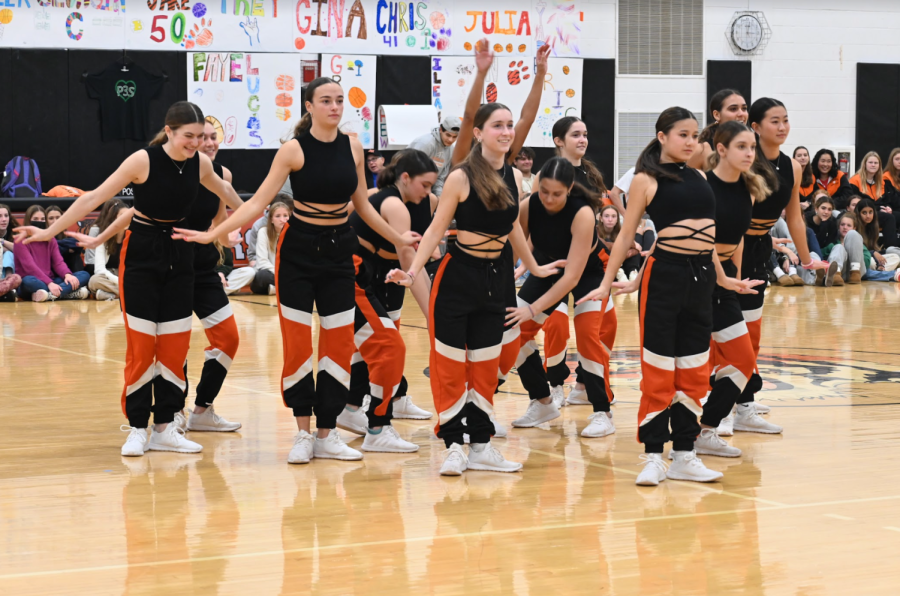A-Block
by Jacob Sims Speyer
Students learned about the experience of Dr. Yutaka Kobayashi, a survivor of a Japanese internment camp, during Asian Culture Day’s A-block presentation in the auditorium. During the event, Kobayashi showed a DVD which explained both his life story as a second-generation Japanese and the impact of internment on the Japanese-American community as a whole.
Kobayashi’s presentation first introduced the term nisei, a word used to refer towards second generation Japanese-Americans, like Kobayashi himself.
Next, Kobayashi outlined a brief history of Asian-Americans within the United States before World War II, explaining how they were discriminated against from the 19th century when the government passed a series of laws prohibiting both Chinese and Japanese immigration into the country.
Growing up, Kobayashi was a proud United States citizen. “Democracy is what makes our country so special,” he said. However, he soon found his own rights taken away following the Pearl Harbor bombings, when his family along with many other Japanese-Americans were moved to the infamous Tanforan racetrack internment camps. There, he was held until permanent camps were built in Topaz, Utah, where he was later moved to.
“Just because we happened to be of Japanese ancestry,” his rights were violated, Kobayashi said. “In times of crisis, we can forget what we stand for.”
Kobayashi explained the plight of other Japanese-Americans, mentioning how those living in Hawaii were “treated like any other American family” due to the large number of Japanese-Americans on the island.
The 100th Infantry Battalion also represented a victory for Japanese-Americans at the time, according to Kobayashi. The Battalion, which was comprised of many nisei, went on to play a pivotal role in rescuing captured US troops, helped liberate the Nazi internment camp Dachau, and eventually became one of the most decorated battalions in the army.
After living in the internment camps, Kobayashi was given the opportunity to attend Alfred University in New York, thanks to the National Japanese American Student Relocation Council (NJASRC). Although he was initially concerned about the high price of admission, he was told by the council not to worry.
Today, Kobayashi is a board member of the Nisei Student Relocation Commemorative fund, which awards scholarships to students across the country. Created by Nisei, the non-profit foundation was inspired by the actions of the NJASRC. The fund “demonstrates how a negative experience can be turned into something positive,” Kobayashi said.
E-Block
by Maya Waldman
History teacher Subheen Razzaqui described the prejudice and racism she faced as a Muslim woman growing up in America as part of Asian Culture Day Feb. 10th during E-block in the auditorium.
Organized and run by Asian Culture Club officers seniors Sabrina Ng and Fiona Yang, and sophomores Wendy Li and Li Shandross, Asian Culture Day honors the spirit and diversity of Asian culture.
The event began with the recognition of the Lunar New Year, which according to the officers started on Monday.
Razzaqui dived into her stories, specifically describing her experiences as a Pakistanian living in America. She described how she “felt ugly and embarrassed, and looking back now, that is still very troubling.”
Recalling her experiences in college, Razzaqui talked about the importance of college, and how it opened her eyes to different cultures and customs. However, she stressed that if a person is close-minded or prejudiced, college can also limit these discoveries.
Although Razzaqui had difficulty in America, she recollected that life in Europe was even harder. “People in Europe were even less accepting of my culture and my ideals. It was hard,” said Razzaqui.
Razzaqui explained that at age 22 she began to wear a headscarf, which helped her feel more secure about her identity. Furthermore, she decided to give her children Pakistani names to help them feel content about who they were.
After Sept. 11, 2001, many things changed, according to Razzaqui. She described how many people treated her differently after the terrorist attacks. When she gave birth to her son, she recalls thinking, “I just brought a kid into the world who is going to be seen as a terrorist.”
Razzaqui described determinedly her religion, and how Islam emphasizes peace and submission. “The reality of my faith is so different than what is portrayed on television,” she explained.
“Racism influences people’s decisions greatly,” added Razzaqui. “We simply must learn to celebrate ourselves even when people try to hurt us.”
G-Block
by Samantha Fredberg
Movie producer and actor Michael Tow introduced students to his short film “East of Hollywood” to emphasize and challenge stereotypes placed on Asian-Americans as a part of Asian Culture Day during G-block Feb. 10.
The short film, starring Tow, depicts the struggles of Asian-Americans in the film industry with a comedic sense. Characters describe acting jobs where their role was influenced by their ethnicity and stereotypes the industry holds.
“I hope it was comedic enough that people understand that there’s truth to these situations and realize how ridiculous these stereotypes are,” said Tow. “Media and film have definitely enforced stereotypes in the past, but with new characters and movies they are definitely changing,” he added.
According to Tow, characters in the film exaggerated on stereotypes, yet they were mostly accurate. Characters faced auditions where they were expected to be dressed in a schoolgirl outfit or a traditional dress, perform martial arts, speak fluent mandarin, and break boards with their heads all because of their Asian ancestry.
The film ended on a hopeful note, according to students, with Tow saying he hopes his daughter can “be whoever she wants to be” when acting, and not be limited to roles that fit her stereotypes.
Asian Culture Day: Guest speakers, videos on Asian-American life
February 13, 2016
0
Donate to The Newtonite
More to Discover













































